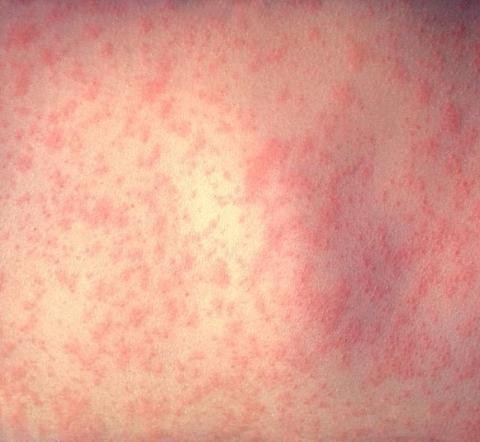Make your holiday care free and measles free

Many popular holiday destinations are experiencing outbreaks of measles. These include France, Spain, Turkey, Germany, Denmark and the Netherlands. England has also seen a recent rise in cases, so the message from the Public Health Agency (PHA) is, if you are travelling outside Northern Ireland, make sure your family are protected.
The PHA is warning about the importance of being protected against the serious infectious disease measles, which can be life-threatening and spread to those who are unprotected. The PHA is urging families to make sure children, teenagers and young adults are fully immunised with two doses of MMR before travelling off to other countries for their summer holidays.
Although most common in children, measles can occur at any age and teenagers and young adults have been affected in recent outbreaks. It is very infectious and can be transmitted either through direct contact with an infected person or through the air when the patient coughs or sneezes.
When travelling to more exotic destinations in Africa and Asia, people often think about vaccines such as typhoid and hepatitis A, but it is just as important to think about the MMR vaccine as measles remains common in these countries.
Dr Richard Smithson, Consultant in Health Protection, PHA, said: “MMR immunisation is the safest and most effective way to prevent measles infection. I would also emphasise that it is never too late to vaccinate and would encourage children and young people of all ages to have two doses of the MMR vaccine to ensure they are protected. It is vitally important to ensure children’s and young people's vaccinations are up to date, particularly if they are in groups or settings where they may be at risk of getting an infection or, if they are infected, of passing on infection to other vulnerable individuals.
"In Northern Ireland, we have had high uptake levels for MMR, which is why we have seen very few cases of measles compared to both the rest of the UK and the Republic of Ireland. Many children and young people here will already have had the two doses and so don’t need to do anything. However, the recent measles outbreak last year reminds us that there is no room for complacency and any young person who hasn’t had the two doses should contact their GP to arrange this.”
Dr Smithson continued: “While measles has become rare here, it is still occurring in other countries and anyone who is not fully protected could easily catch it if they came into contact with it while on holiday. Measles is so contagious that there is a significant chance of contracting the disease by just being in the same room as someone who has it.
“It is therefore important to get the vaccine before going on holiday if you aren’t already fully protected. It’s worth getting the vaccine even a couple of days before going away, as it will protect as long as it is given before being exposed to measles. Being fully protected means having had two doses of MMR. Most people born before 1970 will have had measles and will therefore also be protected.”
Contact the PHA Press Office on 028 9031 1611.
- Measles is an infectious viral disease that at one time affected up to 800,000 people every year in the UK.
- Symptoms of measles are fever, cough, red and painful eyes, swollen glands, loss of appetite and a rash that tends to follow three or four days after the onset of symptoms.
- Most people recover from measles without too many problems, but a significant number develop serious complications.
- The MMR uptake rate in Northern Ireland is 97.1% for one dose and 92.2% for two doses at five years of age.
- France reported more than 1,500 cases of measles in 2009, 4,500 cases in 2010 and nearly 5,000 in January to March 2011.
